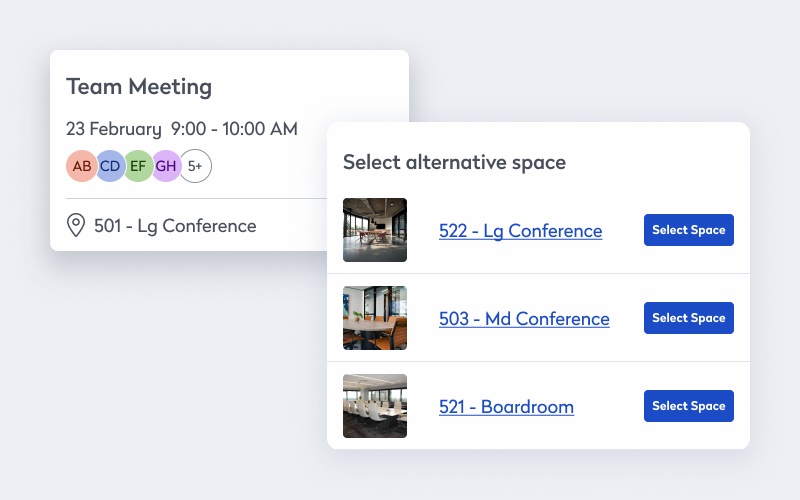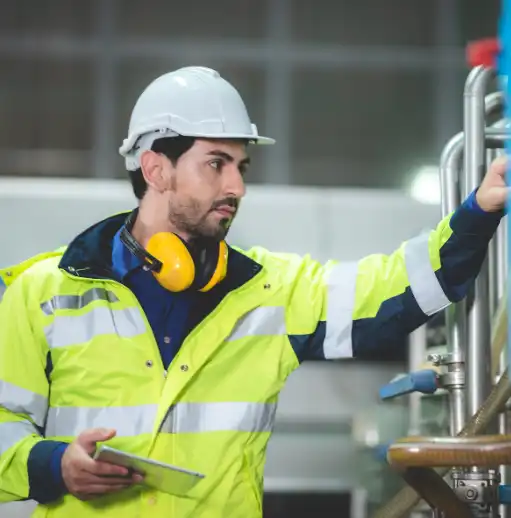
World Mental Health Day 2025 is a timely reminder for HR professionals to look closely at how their organizations support employee wellbeing. Employees need time away to recharge, and they also benefit from streamlined, low-stress systems when they’re onsite. HR teams play a central role in shaping both experiences, helping employees feel more balanced, more supported, and better equipped to do their best work.
Key takeaways
- HR professionals play a crucial role in shaping policies and practices that support employee wellbeing by promoting time away and ensuring streamlined, low-stress systems when employees are onsite
- There’s a significant link between employee wellbeing and productivity. Employees who don’t take time off are at a higher risk of burnout, stress, and anxiety, leading to lost productivity
- HR can help humanize the workplace by implementing clear PTO policies, intuitive workplace technology, and tools to reduce stress and support employee wellbeing
Promoting taking time away helps build a healthier work culture, and HR professionals play a key role in shaping the policies and practices that make this possible.
Just as important is making sure employees have dependable, streamlined, and stress-free systems for in-office connections and team days when they’re at work.
What’s the connection between wellbeing and productivity?
PTO plays an important role in maintaining employee wellbeing and supporting performance. High-performing employees often manage heavy workloads and tight deadlines. Without time to recharge, they face a higher risk of burnout and disengagement.
In fact, employees with fair or poor mental health miss an average of 12 workdays per year due to unplanned absences, costing the U.S. economy an estimated $47.6 billion annually in lost productivity. Burnout, stress, and anxiety are common when employees do not take time off.
Presenteeism, when employees are at work but performing poorly, is also an issue, and employees with unresolved mental health issues often work at only 72% of their full capacity, which adds to hidden productivity losses.
Why are employees not using their PTO and how can HR help?
Despite the availability of PTO in employee benefit plans, there are many reasons why employees don’t take the mental health days they need.
Some employees feel guilty. One in five American workers feel guilty for taking time off because they feel their co-workers will have to take on their workloads. It’s also likely the reason many who take PTO still make themselves accessible during that time, defeating the purpose of being offline to recharge.
There are also employees who worry they’ll be judged. 27% of workers worry their manager and peers will perceive them as lazy if they take time off, and it’s especially true for mental health days.
There’s still a stigma for employees who take mental health days, which is why many make up another reason for taking that time off. Nearly half of the 63% of employees who take time off for mental health lie about why.
Nobody should lie about needing to take mental health days. Talk more openly about these within your organization and why you support them.
But time away isn’t the only factor. Employees also need to feel supported when they’re in the office. A stressful or disorganized workplace can undermine wellbeing, even for those who take regular PTO. According to a 2023 survey by McKinsey Health Institute, 60% of employees say their work environment plays a significant role in their mental health.
When systems are intuitive and workdays are easier to manage, employees are more likely to stay focused, feel confident, and avoid burnout.
HR professionals can help by ensuring that both time off and time onsite are designed to support wellbeing. That means clear PTO policies and workplace technology that reduces friction—so employees can recharge when they’re away and stay grounded when they’re at work.
What are concrete steps HR professionals can take to encourage employees to use PTO?
Employees who take mental health days are not only helping themselves but also their company. That said, encouraging teams to take days off for mental health reasons requires extra care and consideration due to existing stigmas.
To resourcefully support employees who use PTO for mental health:
- Create a “no questions asked” policy for taking PTO: Take the stigma out of the equation when employees need to take a mental health day. Have this policy in writing somewhere your employees can access it easily
- Remind employees of the benefits of PTO, including mental health: Whether through your employee newsletters, team webinars, or company town halls, reiterate to employees that one of the benefits of PTO is how it can improve their mental health
- Redefine PTO as more than taking vacation days: Discuss PTO in terms of more than just vacations, such as focused family time and self-care. With hybrid and flexible work more common, workers might need an additional nudge
Clear communication from leadership helps normalize mental health PTO and reduces hesitation around using it. When managers consistently support time off and model healthy boundaries, employees are more likely to follow suit without fear of judgment.
How can HR help humanize the workplace to support employee wellbeing?
Employees do their best work when they feel supported. Building a culture that values connection, flexibility, and personal growth helps people stay engaged and resilient.
Modern integrated workplace technology should make it easier for employees to navigate their day. When tools are intuitive and responsive to real needs, they help reduce stress and create space for more meaningful work.
Team Days: Making in-person time more intentional
Team Days give managers a simple way to coordinate in-office schedules so teams can connect when it matters most. Instead of relying on scattered messages or manual planning, managers can set shared days for collaboration.

Employees benefit from knowing when their teammates will be onsite, which helps them plan meetings, brainstorming sessions, and social time more effectively. Built-in reminders and calendar integrations reduce the mental load of coordination, making it easier to focus on the work itself.
AI-assisted desk booking: Supporting comfort, focus, and flexibility
AI-powered desk booking helps employees find the right workspace without added stress. Whether someone prefers a quiet corner for deep work or a spot near teammates for collaboration, the system makes it easy to choose based on location, amenities, and availability. The interface is designed to be fast and intuitive, so employees can book a desk in seconds and start their day with clarity. Having control over where and how they work supports both productivity and personal comfort, which contributes to overall wellbeing.
Microsoft copilot integration: Simplifying everyday tasks
Microsoft Copilot integration brings intelligent assistance into daily workflows. Employees can use natural language to book rooms, check schedules, or locate resources without switching between apps or digging through menus. The system responds quickly and accurately, helping people save time and reduce frustration. By streamlining routine tasks, Copilot frees up mental space for more strategic work and supports a smoother, less stressful office experience.
World Mental Health Day: Opportunities to better support employee wellbeing
Supporting mental health at work means creating space for employees to care for themselves—whether that’s through time off or through thoughtful, stress-reducing systems in the office. PTO policies that normalize mental health days help employees step away when they need to recharge. At the same time, workplace technology that simplifies scheduling, desk booking, and daily tasks helps reduce friction when they’re onsite.
HR professionals are in a unique position to lead on both fronts. Clear communication, inclusive policies, and intuitive tools all contribute to a healthier, more resilient workforce. World Mental Health Day is an opportunity to reinforce that commitment and take meaningful steps toward a workplace culture where wellbeing is part of the everyday experience.









